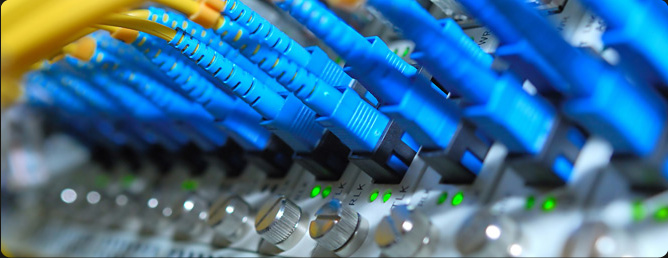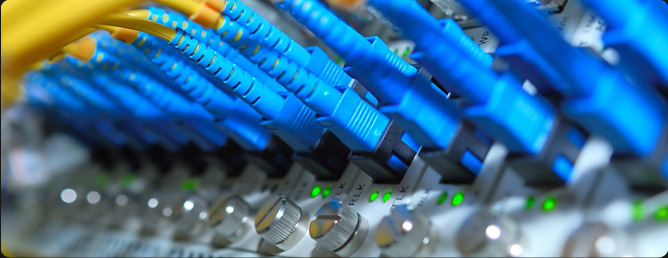
Tmthetom via wikimedia
The previous rules had operated for about 30 years. According to European Commissioner for the digital economy and society Günther Oettinger, they provided "common standards of quality for all." The new regulations, in principle, proclaim the same. As stated in the document approved by the European Parliament, "service providers are required to equally serve all Internet traffic, without discrimination, restriction or interruption, regardless of the sender and the receiver, downloaded or distributed content ...".
However, the same document introduces the concept of "special services". They are not ordinary Internet access services, and require a much greater speed and resiliency than simple e-mailing. For example, this is exchange of high-resolution images in medicine. Ambulance cars in Europe are now increasingly being filled with diagnostic equipment. Doctors on the road sometimes urgently need to share images with colleagues-experts. This allows clarifying the diagnosis, and sometimes preparing the surgery as the ambulance with the patient rushes to the nearest hospital.
Another example of a "special service" is new-gen equipment for a new generation of industy called "Industry 4.0". Automated sectors should promptly communicate with each other, so the delay lines, or data loss can lead to failure of complex production processes.
This list of "special services" is just beginning to take shape, which is extremely pleasant with telecommunications companies throughout the European Union. After all, the new rules allow the EU not only to provide very fast internet connection for these services, but also to charge some extra fees. Preliminary work has already begun. German telecommunications services market Deutsche Telekom is now actively expanding nationwide use of fiber-optic cables able to transmit data at breakneck rate of 10 gigabits per second. Mass start of operation of the new mobile communication standard 5G is expected to deliver similar speed by 2020.
European manufacturers of telecommunication equipment are interested, too. The continent’s leaders in this field are the Swedish company Ericsson and the Finnish Nokia, which is in the process of absorption by the French-American Alcatel-Lucent. These companies see changing regulations in the EU's requirements as an opportunity to strengthen their financial position and improve chances for global leadership on the basis of technological developments in Europe.
However, critics of the new European regulations are not that happy. They think the new rules are dangerous, and prophesize that Internet users will be split into two parts. One of them can be discriminated against others who are ready to pay more for the provider’s service.
Opinions of telecommunications experts have divided. However, almost all of them point to an aspect that is often shaded by the "Internet elite" discussions.
Regardless of whether the global online space will get "dedicated lane" for the elite or not, the Internet is faced with threatening traffic growth. According to American Cisco, one of the world leaders in telecommunications, the exchange of information on the Internet by the beginning of 2019 will be 5 times bigger than today. So, we better do something right now before we find ourselves in full absence of fast Internet connection.
source: dw.de
However, the same document introduces the concept of "special services". They are not ordinary Internet access services, and require a much greater speed and resiliency than simple e-mailing. For example, this is exchange of high-resolution images in medicine. Ambulance cars in Europe are now increasingly being filled with diagnostic equipment. Doctors on the road sometimes urgently need to share images with colleagues-experts. This allows clarifying the diagnosis, and sometimes preparing the surgery as the ambulance with the patient rushes to the nearest hospital.
Another example of a "special service" is new-gen equipment for a new generation of industy called "Industry 4.0". Automated sectors should promptly communicate with each other, so the delay lines, or data loss can lead to failure of complex production processes.
This list of "special services" is just beginning to take shape, which is extremely pleasant with telecommunications companies throughout the European Union. After all, the new rules allow the EU not only to provide very fast internet connection for these services, but also to charge some extra fees. Preliminary work has already begun. German telecommunications services market Deutsche Telekom is now actively expanding nationwide use of fiber-optic cables able to transmit data at breakneck rate of 10 gigabits per second. Mass start of operation of the new mobile communication standard 5G is expected to deliver similar speed by 2020.
European manufacturers of telecommunication equipment are interested, too. The continent’s leaders in this field are the Swedish company Ericsson and the Finnish Nokia, which is in the process of absorption by the French-American Alcatel-Lucent. These companies see changing regulations in the EU's requirements as an opportunity to strengthen their financial position and improve chances for global leadership on the basis of technological developments in Europe.
However, critics of the new European regulations are not that happy. They think the new rules are dangerous, and prophesize that Internet users will be split into two parts. One of them can be discriminated against others who are ready to pay more for the provider’s service.
Opinions of telecommunications experts have divided. However, almost all of them point to an aspect that is often shaded by the "Internet elite" discussions.
Regardless of whether the global online space will get "dedicated lane" for the elite or not, the Internet is faced with threatening traffic growth. According to American Cisco, one of the world leaders in telecommunications, the exchange of information on the Internet by the beginning of 2019 will be 5 times bigger than today. So, we better do something right now before we find ourselves in full absence of fast Internet connection.
source: dw.de


















